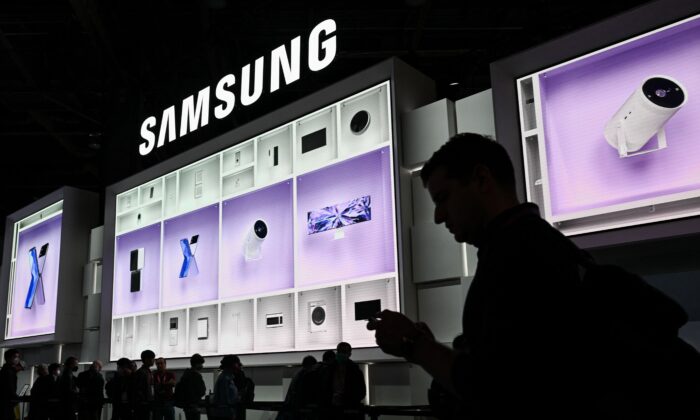South Korean lawmakers proposed subsidies, allowance for more overtime in anticipation of China’s slashing prices in a way that will edge out Korean rivals.
South Korean lawmakers proposed a new subsidy package on Nov. 11, aimed at protecting domestic chipmakers in anticipation of global industry shockwaves that are expected if U.S. President-elect Donald Trump enacts the 60 percent or higher tariffs on Chinese-made chips and other goods that he previewed on the campaign trail.
South Korean President Yoon Suk Yeol warned last week that the Chinese industry could respond to increased U.S. tariffs by slashing prices to the point of undercutting South Korean chipmakers and urged lawmakers to tackle the issue. China under the Chinese Communist Party (CCP) does not have a market economy, and industries often act in the direction of CCP goals rather than market forces.
The bill was proposed by South Korea’s ruling party and needs approval from the opposition party to pass.
In addition to subsidies, it proposes an exemption to the nation’s labor law that prohibits more than 12 hours of overtime per week. Samsung’s labor union, which went on strike for the first time earlier this year, has opposed increasing the 52-hour working week cap.
Lawmaker Lee Chul-gyu, one of the bill’s sponsors, said the bill would help domestic chipmakers amid growing competition from China, Japan, Taiwan, and the United States as U.S.–China tensions heighten.
Korean Chip ‘Crisis’
Last month, Samsung reported disappointing third-quarter profits, citing delays in its artificial intelligence chip business and competition from Chinese rivals in conventional chips.
Samsung’s stock has dropped by more than 20 percent this year, and in May, the company replaced the head of its semiconductor division to boost competitiveness, citing a “chip crisis.”
The company is seen as lagging behind other Asian chipmakers such as Taiwan’s TSMC and South Korea’s SK Hynix.
On May 23, South Korea’s president announced a $19 billion support plan for the domestic chip industry that included tax cuts and various fund programs.
“As you all know, semiconductors are a field of national all-out war,” Yoon said.
“Winning or losing depends on who makes the state-of-the-art semiconductors with high information processing capabilities first. The state must provide support for semiconductors so that they do not lag behind competitors.”
Yoon noted that South Korea’s market share in the chips industry, not including manufacturing, was in the 1 percent range. “Foundry, which manufactures system semiconductors, is unable to close the gap with leading companies such as TSMC,” he said.
The $19 billion package was built on a previously announced plan to build out what the South Korean government hopes will be the world’s largest chip center, which would house new factories, companies of various sizes, and research and development facilities.r
Southeast Asia Boon?
The industry is bracing for new China restrictions, and Southeast Asian countries expect some chip companies to move from China.
One of Thailand’s largest industrial estate developers, WHA Group, has added Chinese speakers to its sales force in anticipation that Chinese factories will move to Southeast Asia to avoid Trump tariffs.
“This round is going to be more intense [than in Trump’s first term],” WHA Group CEO Jareeporn Jarukornsakul said.
Amata Corp’s founder, Vikrom Kromadit, said that, already, two-thirds of the 90 companies opening in the Thai industrial park developer’s sites are relocating from China.
Thai Commerce Minister Pichai Naripthaphan framed the situation as a boon, saying Thailand would not need to choose between the United States and China, anticipating high investment from Chinese companies that will manufacture in Thailand and sell to the United States.
Soh Thian Lai, president of the Federation of Malaysian Manufacturers, also anticipates that Chinese companies will relocate to Malaysia, especially those in the semiconductor industry.
U.S. officials and lawmakers have criticized China for its unfair trade practices, particularly in the semiconductor industry, where concerns are heightened because of national security issues.
Reuters contributed to this report.

